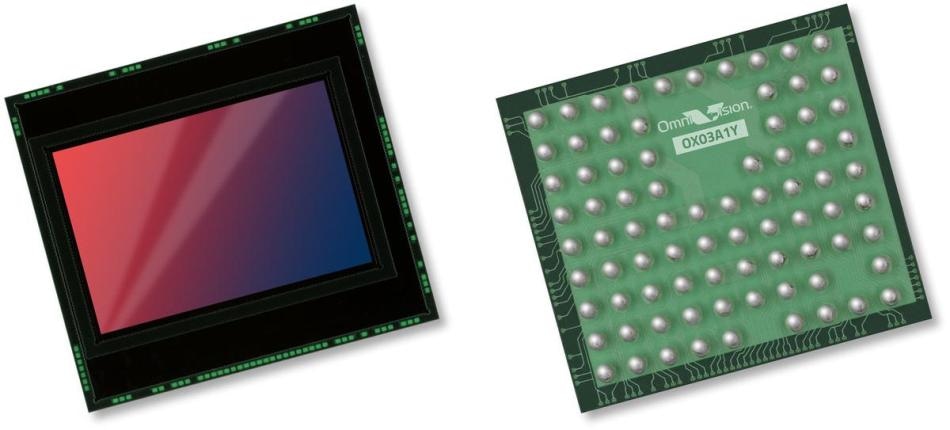Sep 16 2019
OmniVision Technologies, Inc., a leading developer of advanced digital imaging solutions, today announced from the AutoSens conference that it has combined OmniVision’s OX03A1Y image sensor with the Arm® Mali™-C71 image signal processor (ISP) for a dual-mode automotive camera module. OmniVision’s sensor features the automotive industry’s best image quality across all lighting conditions for rear and surround view cameras, as well as a broad range of machine vision applications for ADAS (e.g., blind-spot detection, e-mirrors and lane-departure warnings) and autonomous driving platforms.

“As vehicles evolve, automotive designers need to balance adding increasingly capable cameras and image sensors with cost and space savings, while speeding up time to market,” said Tom Conway, director of product management, automotive and IoT Line of Business, Arm. “OmniVision’s dual-mode image sensor showcases the Mali-C71’s ability to process multiple real-time inputs with one pipeline, capturing both human display and computer vision images with a single image sensor, at the highest possible quality.”
“Arm’s ISP intellectual property is an important part of the automotive ecosystem, and they are a key partner for OmniVision,” said Celine Baron, staff automotive product marketing manager at OmniVision. “This collaboration demonstrates the high performance that can be achieved by combining our premium 2.5MP image sensor with Arm’s ISP, for automotive applications that need both computer vision and human displays from a single camera module.”
OmniVision and Arm used an FPGA emulating the Mali-C71 ISP to simultaneously process images captured by the OX03A1Y sensor for both computer vision and human displays. This sensor uses an RCCB clear color filter pattern to capture high quality images in all lighting conditions. The Mali-C71 then processes the data concurrently, outputting two simultaneous image signals for both human viewing and machine vision.
The OX03A1Y is the industry’s first image sensor to feature a 3.2µm pixel with high dynamic range (HDR), dual conversion gain (DCG) and an RCCB color filter. Its HDR of 120dB enables the crisp capturing of dark and bright portions in the same scene, such as when cars come out of a tunnel. DCG provides motion-artifact-free HDR to ~85dB, for the best images when vehicles are moving. The RCCB color filter allows in more light, which, in combination with OmniVision’s OmniBSI™-2 pixel technology, produces the automotive industry’s best low-light performance with SNR1 at 0.09 lux, all the while with low power consumption. This is the first sensor to integrate all three capabilities, offering the automotive industry’s top image quality across all lighting conditions. Additionally, the OX03A1Y is shipping in volume to automotive customers.
To further reduce space, the OX03A1Y is available in a small 8.0 x 7.2mm chip-scale package, which is 35% smaller than competing image sensors. This enables the smallest camera modules, for more appealing automotive styling without sacrificing functionality. Additionally, this image sensor’s power consumption is 20% lower than the competition, which emits less heat and reduces noise to achieve better low-light performance.
For designers already using the OX03A10 sensor, the new OX03A1Y offers a drop-in replacement with sensor fusion capabilities. Additionally, the 2.5MP OX03A1Y image sensor integrates advanced ISO 26262 ASIL B functional safety features.
This demo can be viewed at OmniVision’s AutoSens conference booth #29 in Brussels, Sept. 17-19, 2019. Additionally, the OX03A1Y is available now for sampling and volume production, along with an evaluation kit to test how this sensor performs.